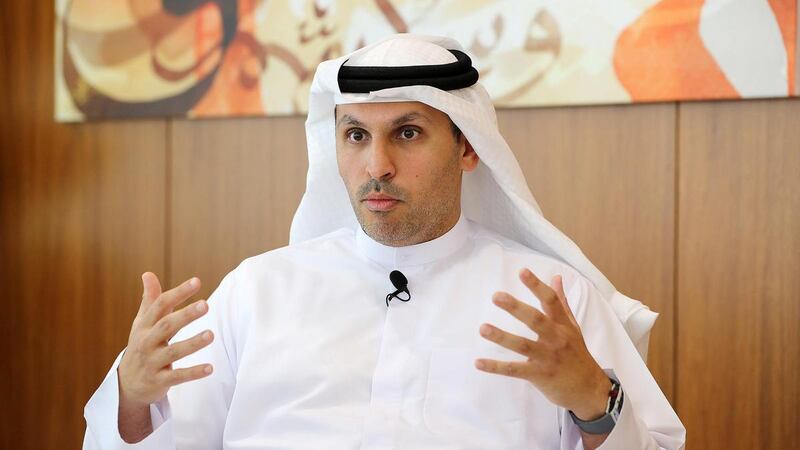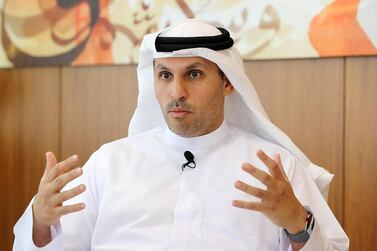The Covid-19 pandemic has hastened Mubadala Investment Company’s pivot to new technology and territories as it looks to double down on investment in clean energy and mobility, its group chief executive said.
“What Covid-19 has done, essentially, is supercharged that move [to diversify],” Khaldoon Al Mubarak told an online panel discussion during the Global Manufacturing and Industrialisation Summit on Saturday.
He said the way the company operated, invested and looked had changed and would continue to evolve as the pandemic subsides.
Even before the pandemic, Mubadala was increasing its investment in renewable energy, energy storage, mobility, automation, robotics, artificial intelligence and connectivity.
The Covid-19 outbreak proved that Mubadala was “on the right path” in its shift away from the traditional investment model, Mr Al Mubarak said.
Mubadala remains bullish about growth in green energy, having invested in the sector over the past decade.
Abu Dhabi is home to about 80 per cent of the installed solar energy capacity in the Gulf region, with Mubadala and the emirate’s clean energy company Masdar playing a big role, he said.
“We are going to continue to expand into this space as this is ... clearly going to grow,” Mr Al Mubarak said.
The company is also interested in investing in hydrogen energy projects.
“These things take time. Renewable [energy] took us 10 years to get where we are today. With hydrogen, I think the journey is [starting] now,” he said.
Mr Al Mubarak said the company had held many discussions with global partners such as Siemens. The German industrial company is the world’s biggest renewable energy provider, with about 110 gigawatts of installed capacity globally.
Siemens’ president and chief executive Joe Kaeser, who took part in the panel discussion, supported Mr Al Mubarak’s investment case and said solar power would remain in play as more efficiency could be found in the sector.
Mr Kaeser, however, said “the next big thing in energy” would be hydrogen platforms.
With an asset base of Dh853 billion, Mubadala invests on behalf of the Abu Dhabi government and is at the heart of the emirate’s plans to diversify its revenue base and generate income from sources other than oil.
Mr Al Mubarak said the coronavirus pandemic changed the way businesses operate around the world and had “dramatically and substantially” moved Mubadala into the digital age.
He said the company had been focused, diligent and active in putting capital to use and “finding [new] opportunities and really shifting our portfolio into the direction that we were planning to go”.
Mr Al Mubarak said that while liquidity injections by governments and stimulus packages had a positive effect, particularly in large economies around the world, returning to a more stable period of economic activity would take time.
Businesses will have to learn how to adapt to the new realities in the post-coronavirus world and only those who can pivot will survive, he said.
“For people that think ... things are going to go back to normal [after Covid-19] – if you think that way, then I think you are finished,” he said.
“The world has changed, and you have to evolve. And I think the companies and countries and individuals that are able to pivot and really look at this new world will be the ones that succeed.”
Economies around the world have moved on from the commodity and financial market turmoil, shutdowns and the surge in Covid-19 infections and deaths. However, risks remain as successive waves of infections are expected.
Mr Al Mubarak said he was confident that a vaccine would be developed soon.
“I would say we are close now. There will be [several] vaccines in my view and they will be coming one by one in months, not in years. We are talking about anywhere between two to eight months.”
Mubadala’s investment portfolio stretches across five continents and covers the aerospace, information and communications technology, semiconductor, metals and mining, petrochemicals, renewable energy and oil and gas industries.









